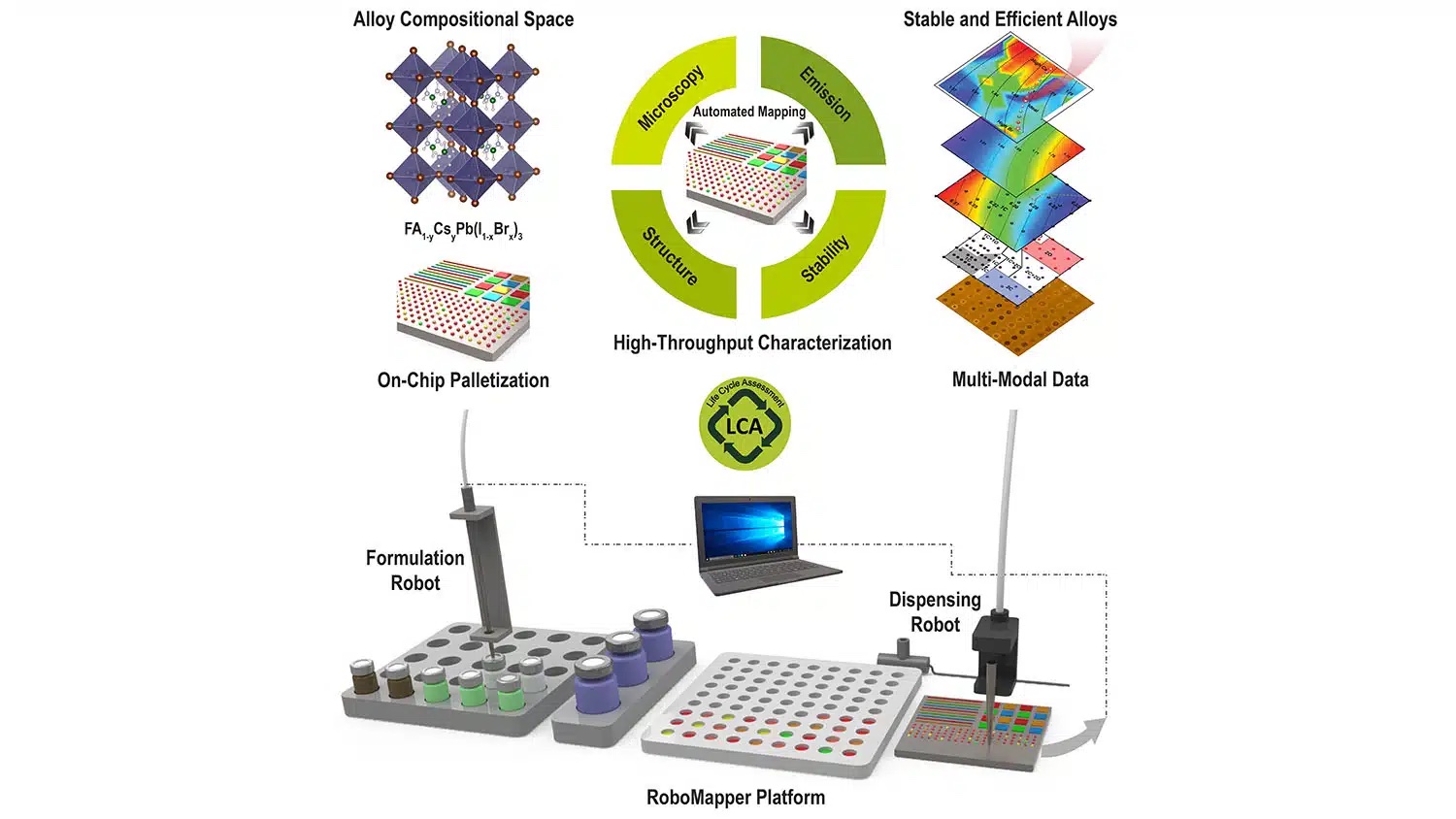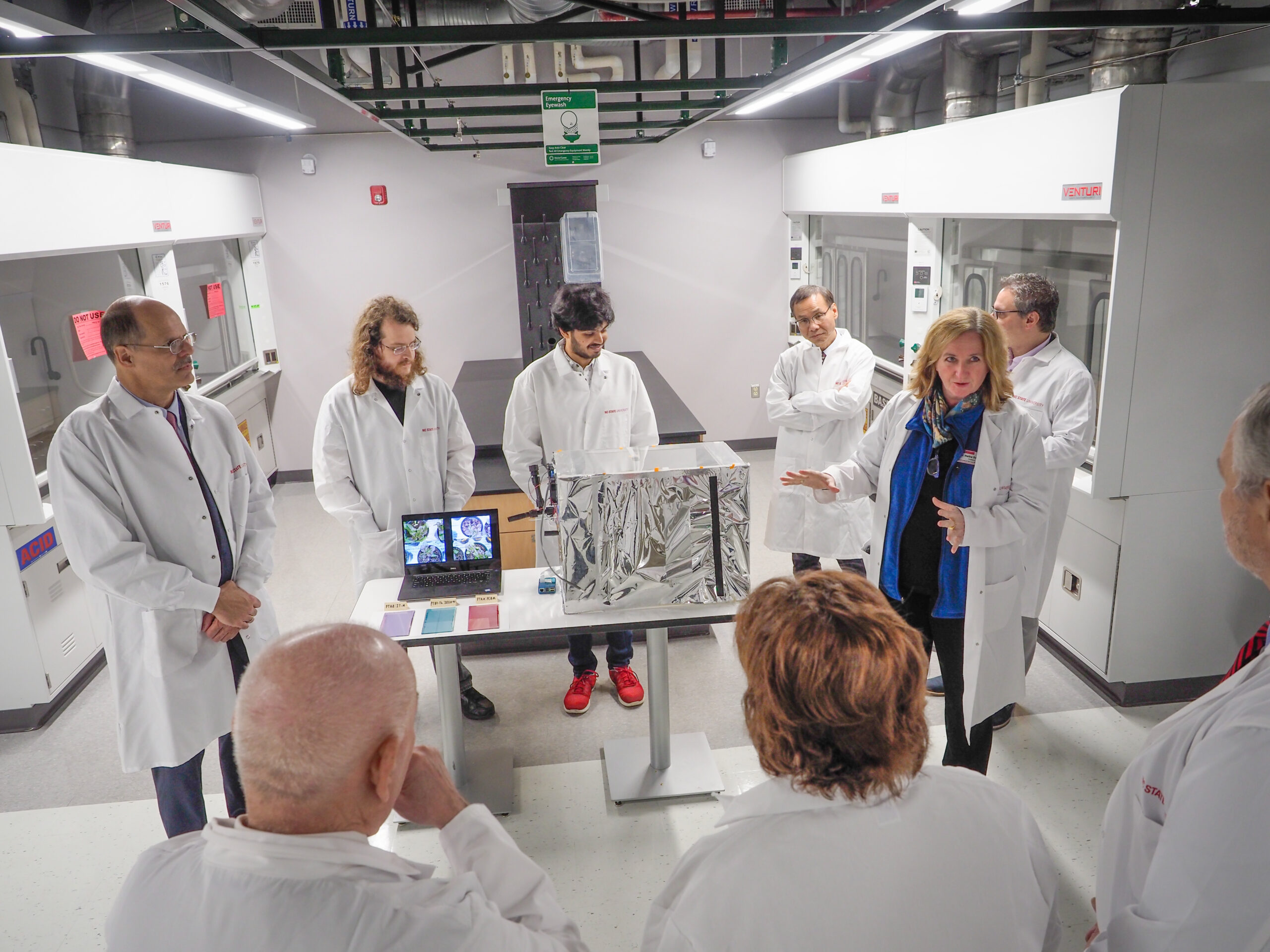ORaCEL Graduate Dr. Jingying Wang wins Physics Department Research Assistant Award for her Spin Polarized STM Thesis work.
Ten years ago a surprising paper reported “giant” magnetoresistive effects in organic films made from the electroluminescent molecule “Alq3” that had previously been an important OLED material [1]. Since then, scientists and engineers have been chasing the idea of organic spintronics: using designer organic molecular solids to control spin dependent charge transport in device applications [2]. Along the way, it has become increasingly clear that interfaces in organic spintronic devices are a critical and complex challenge to our basic understanding [3].
Jingying Wang  took up this challenge for her Ph.D thesis work, supervised by ORaCEL faculty member Dan Dougherty, beginning in 2013. She designed and carried out experiments to probe organic-metal interfaces with single molecule resolution using a spin polarized scanning tunneling microscope. Recently, she showed that very subtle changes to molecular electronic structure of Alq3 that are made by substituting Cr3+ for Al3+ result in huge changes to the interfacial properties. In particular, the nature of the magnetic bands at the interface can be switched from metallic for Alq3 to insulating for Crq3. This work illustrates how sensitive organic spintronic interfaces can be to minor changes and offers new routes to controlling interfacial properties.
took up this challenge for her Ph.D thesis work, supervised by ORaCEL faculty member Dan Dougherty, beginning in 2013. She designed and carried out experiments to probe organic-metal interfaces with single molecule resolution using a spin polarized scanning tunneling microscope. Recently, she showed that very subtle changes to molecular electronic structure of Alq3 that are made by substituting Cr3+ for Al3+ result in huge changes to the interfacial properties. In particular, the nature of the magnetic bands at the interface can be switched from metallic for Alq3 to insulating for Crq3. This work illustrates how sensitive organic spintronic interfaces can be to minor changes and offers new routes to controlling interfacial properties.
Jingying’s work demonstrating interfacial magnetic control took advantage of close collaboration with ORaCEL Faculty member Phil Castellano, whose group synthesized the Crq3 material. In addition, theoretical collaboration with Prof. Feng Liu and Wei Jiang from the Materials Science and Engineering Department at the University of Utah has been crucial to completing the project. Jingying was recognized for this work by the Physics Department as the recipient of the outstanding RA award for 2016. The award was announced at the Physics Department colloquium on August 8, 2016.
In addition to her work comparing Aq3 and Crq3, Dr. Wang’s thesis work also involved important contributions to topological insulator interfaces [4], preparation of magnetic tips, and investigation of new indirect coupling mechanisms of organic semiconductors at electrode surfaces [5] . Dr. Wang defended her thesis in June 2016 and will move on to do postdoctoral research in optical properties of materials in the Department of Physics at the University of Utah.
References
[1] Xiong et al., Nature 427, 821 (2004).
[2] Sanvito, Chem. Soc. Rev. 40, 3336 (2011).
[3] Barraud Nat. Physics 6, 615 (2010).
[4] Wang et al., J. Phys. Chem. C 118, 14860 (2014).
[5] Wang and Dougherty, Phys. Rev. B 92, 161401R (2015).
- Categories:


